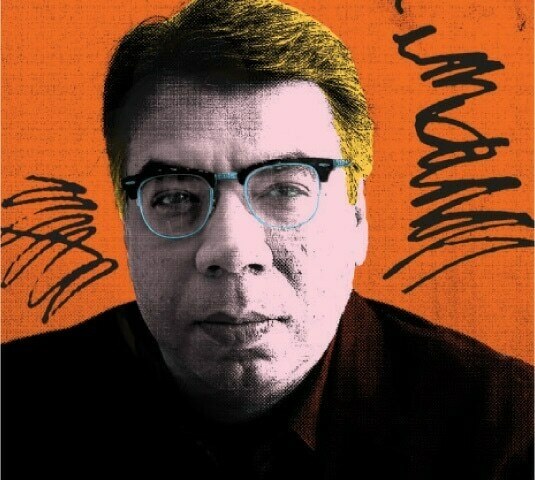
The 2010s witnessed a surge in the electoral fortunes of far-right parties in Europe. Most of these parties were once languishing on the fringes of mainstream politics. But in the past decade, many of them have greatly surpassed their previous electoral performance.
Recently, the far-right Brothers of Italy won a majority in general elections in Italy. The party is likely to form the new government. It will become the third far-right regime elected in Europe since 2010. The other two are in Hungary and Poland.
In April 2022, the presidential candidate of the far-right National Front in France bagged an impressive 41.45 percent of the total vote. In the September 2022 parliamentary elections in Sweden, the far-right Sweden Democrats won the second largest number of seats.
A change of tactics by far-right parties in Europe helped them break out from the fringes. Adopting populism was the tactic. Populism is often understood as a ‘thin ideology’. It borrows ideas from the more established ideologies of the left and the right to concoct alarming narratives. Such narratives portray a party as being the ‘voice of the people’.
The surge in far-right electoral fortunes in the 2010s was largely associated with the surge in the appeal of dedicated far-right parties. In some cases, however, it’s more moderate parties that have opportunistically veered towards far-right rhetoric
A populist poses as a warrior fighting against the corrupt, complacent and conniving elites. Populism enhances the threat of a crisis, warning of an impending breakdown.
European far-right groups increasingly began to style their politics in a populist manner. Their mission is to safeguard their region’s Christian heritage, keep out immigrants and, of course, challenge the ‘elites’. They explain globalisation, multiculturalism and liberalism as attacks on the common (Caucasian) natives of Europe who, apparently, are being ‘replaced’ by non-European races. But the surge in the electoral fortunes of far-right politics is not only associated with dedicated far-right parties.
In the US and, to a certain extent, in the UK, right-wing populist figures were able to infiltrate mainstream centre-right parties and push them further to the right. It is a curious case of ‘entryism’ because the roots of entryism lie in the far-left tendencies of Marxism, such as Trotskyism.
In the early 1930s, the Marxist ideologue Leon Trotsky advised communists to dissolve their limited communist groups and infiltrate mainstream parties to change their ideological orientation. ‘Entryism’ became a common communist tactic. But, as it became better known, many far-right groups started to practise it as well, infiltrating moderate right-wing parties in a bid to make them adopt far-right ideas.
For example, Donald Trump in the US was a political maverick who decided to contest Republican Party primaries for the 2016 presidential elections. To distinguish himself from the party’s other hopefuls, Trump tapped into far-right emotions and narratives. This excited Republican Party supporters who had for long grumbled about the party’s lukewarm stands on matters of race, religion and immigration. They saw in Trump a man who was willing to transcend the established conventions of old-style conservatism and blurt out populist takes on various issues, no matter how ‘politically incorrect’ the takes were. He won.

Four years later, he failed to win a second term. But he was successful in radically refashioning the ideological orientation of the Republican Party, which now leans a lot more to the right. The same was the case with the UK’s Conservative Party, when the ‘eccentric’ populist Boris Johnson was able to push it towards becoming a more animated right-wing outfit.
In India, before Narendra Modi became prime minister, the mainstream Hindu nationalist Bharatiya Janata Party (BJP) had begun to distance itself from its far-right roots. Modi, a man who was still politically and emotionally attached to BJP’s roots, has restored BJP’s far-right/xenophobic demeanour.
Nevertheless, the surge in far-right electoral fortunes in the 2010s was largely associated with the surge in the appeal of dedicated far-right parties. Brazil’s Partido Social Liberal (PSL) is a non-European example and, to a certain extent, so is Pakistan Tehreek-i-Insaf (PTI). Yet, whereas PTI cannot be placed in the column of dedicated far-right parties, it can be compared with Hungary’s ruling Fidesz party.
Fidesz emerged in 1988 as a centre-left outfit. It then began to move more to the centre. Unable to gain much electoral traction, it again shifted, but this time to the right. The party was able to somewhat increase its vote-bank in 1998. In the early 2000s, it was rocked by scandals, but the party decided to overcome this by forming an alliance with the right-wing Christian Democratic People’s Party.
When issues such as immigration, globalisation, multiculturalism and the rise of Islamism surfaced across Europe, Fidesz found itself in an advantageous position to capitalise on these ‘fears’. The party took a populist turn by enhancing these fears and questioning liberalism’s ability to safeguard Hungary’s national identity and Christian heritage. It went on to win multiple elections between 2010 and 2022. It effectively turned Hungary into a conservative authoritarian state.
PTI was formed in 1995 as a centrist party. Some of its founders maintain that it was originally conceived as a left-wing outfit. They say, had this not been the case, the late Marxist Meraj Muhammad Khan would not have joined it in 1998. PTI remained on the fringes across the early 2000s, even though it began to shift to the right. This was mainly because of the influence of the mainstream Islamist party the Jamaat-i-Islami (JI), which PTI’s chairman Imran Khan became an admirer of.
From 2007 onwards, Pakistan’s economy began to nosedive and Islamist violence grew manifold. Political turmoil saw the Musharraf dictatorship ousted in 2008 and the return of the country’s two main parties, the centre-right Pakistan Muslim League-Nawaz (PML-N) and the centre-left Pakistan Peoples Party (PPP). As Islamist violence escalated and the economy continued to decline, the military establishment aided PTI to fill what it claimed was a void.
The establishment’s reputation was scarred during Musharraf’s later years when his ‘double game’ of attacking one segment of extremists but nourishing others, began to trigger unprecedented Islamist violence. Khan and his PTI were propped to divert the attention away from the establishment towards the two mainstream parties. PTI turned populist and began to demonise PPP and PML-N. It then started to blame Islamist violence on the US.
By 2021, PTI (now as a ruling party) had increasingly adopted populism, bordering on the far-right. Despite being ousted in April 2022, PTI’s slide into far-right territory has continued.
In Pakistan’s context, this means reinforcing Islamist points of view on various social issues, working towards gaining an electoral landslide — so as to control all major centres of power in the country — and establishing an authoritarian regime buttressed by engineered elections.
Published in Dawn, EOS, October 9th, 2022














































